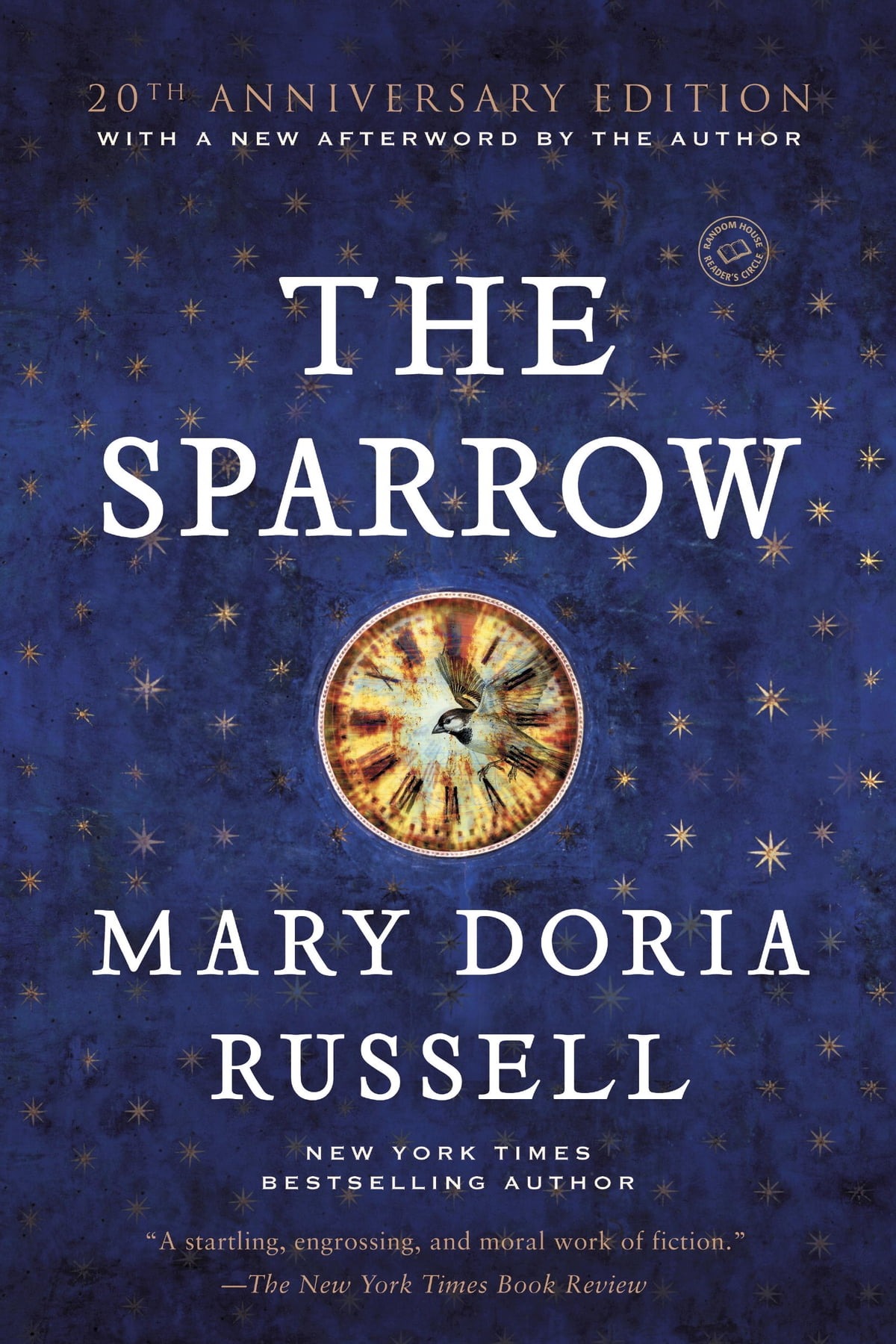“Matthew ten, verse twenty-nine,” Vincenzo Giuliani said quietly. ” ’Not one sparrow can fall to the ground without your Father knowing it.”’
“But the sparrow still falls,” Felipe said.
The Sparrow, Mary Doria Russell
Rating: 🤩 Liked it
Dates read: January 14, 2024 to February 10, 2024
This year, I committed to reading more science fiction — urban over space, but not fully refusing the latter. The Sparrow was recommended to me by some writing friends, after they learned that I enjoy what I called “the Jesuit take on spirituality.” The crossing over of theology, philosophy, and sociology with alien societies was extra appealing to me, and so I ventured in.
The book is about a Jesuit scientific expedition (i.e. organized by the Society of Jesus, with a crew not entirely made up of Jesuit priests) to the planet of Rakhat, after a radio broadcast is discovered and interpreted to be alien songs. The theological underline of this was that “God has other children” and that we had a duty to get to know them and love them.
Afterward, when telling my partner or friends about it, I lovingly explained the book as “Jesuits in space.” I’ve since been delighted to learn that “Jesuits in space” or “priests making first contact” is a well-explored niche, trope or subgenre.
Most of my friends thought “Jesuits in space” was a comical summary. I did too, before I realized just how heavy the book was going to be, with its spiritual, ethical and existential questions.
I love that Emilio Sandoz, the central protagonist, was a complex priest. It’s this sort of layeredness that makes me drawn to Jesuit spirituality above other Catholic-Christian theologies. He was sarcastic and stubborn, prone to humor and even inappropriateness around the right people, brilliant and tortured, with a violent past leading into a mystical present. He was a picture-perfect idea of the path to sainthood, and known by his superiors as “God’s best beloved.”
He was upfront about not necessarily feeling God’s presence but seeking to know Them anyway, and he let himself be led and transformed by God’s mysteries. Despite uncertainties with his personal faith, he followed what he believed to be God’s will, all the way to outer space.
Tragic and traumatizing as the story’s outcome would be, I appreciated (with a complicated literary approach and not necessarily an empathetic human one) how bold the book was in challenging the concept of God’s unknowable will.
“You see, that is my dilemma. Because if I was led by God to love God, step by step, as it seemed, if I accept that the beauty and the rapture were real and true, then the rest of it was God’s will too, and that, gentlemen, is cause for bitterness. But if I am simply a deluded ape who took a lot of old folktales far too seriously, then I brought all this on myself and my companions and the whole business becomes farcical, doesn’t it.
“The problem with atheism, I find, under these circumstances […] is that I have no one to despise but myself. If, however, I choose to believe that God is vicious, then at least I have the solace of hating God.”
the character Emilio, reflecting on the tragic events of the book
I love the priests’ repetition of “Deus vult.” “God wills it,” or in the more casual way they put it, “God likes it that way.” They used it when someone couldn’t explain certain natural sciences, like the way time warped in lightspeed, and then it was used against them when someone died of mysterious causes.
“You want a reason?” she asked, rounding on him. […] “You want a reason? Deus vult, pater. God wanted him dead, okay?”
I adored Sofia Mendez, and came to love Anne Edwards, Jimmy Quinn, Marc Robichaux and the rest. I loved that, even though the book told me from the very beginning that only Emilio Sandoz survived the journey, the book made me fall in love with them all anyway.
I want to emphasize that, despite centering Jesuit priests in the mission, the book is open and tolerant about questioning, about atheism and agnosticism. At several moments, it even raises Judaism — the religion into which the author, Mary Doria Russell, converted after leaving the Catholic church at 15. My favorite character after Emilio is a brilliant Jewish woman.
It is not an evangelistic Christian book, but an inquiry into the nature of faith. I can imagine critical agnostics, skepticals and mystics enjoying this where traditional Catholics might possibly find it unnerving.
The story is so challenging and heavy, and many times straight-up dark. I don’t think I could have read this at a different time of my life: for example, if things were going well for me and I was unready to have my world shaken and my faith (or what semblance of it I have) tested.
The Sparrow framed my faith’s questions more intricately than I could ever do for myself. It also honored those questions enough to not answer them for me.
To call it a memorable read is an understatement — it was more like scarring.
Overall, The Sparrow is a great book for people who want something challenging and thought-provoking, and who are interested in the social and academic complexities of first contact with other species. It’s not for people who want something clean and neatly delivered.
Will I be reading Children of God, the sequel? Absolutely. But not soon. I need to lie down for a few months first.

Let's chat.